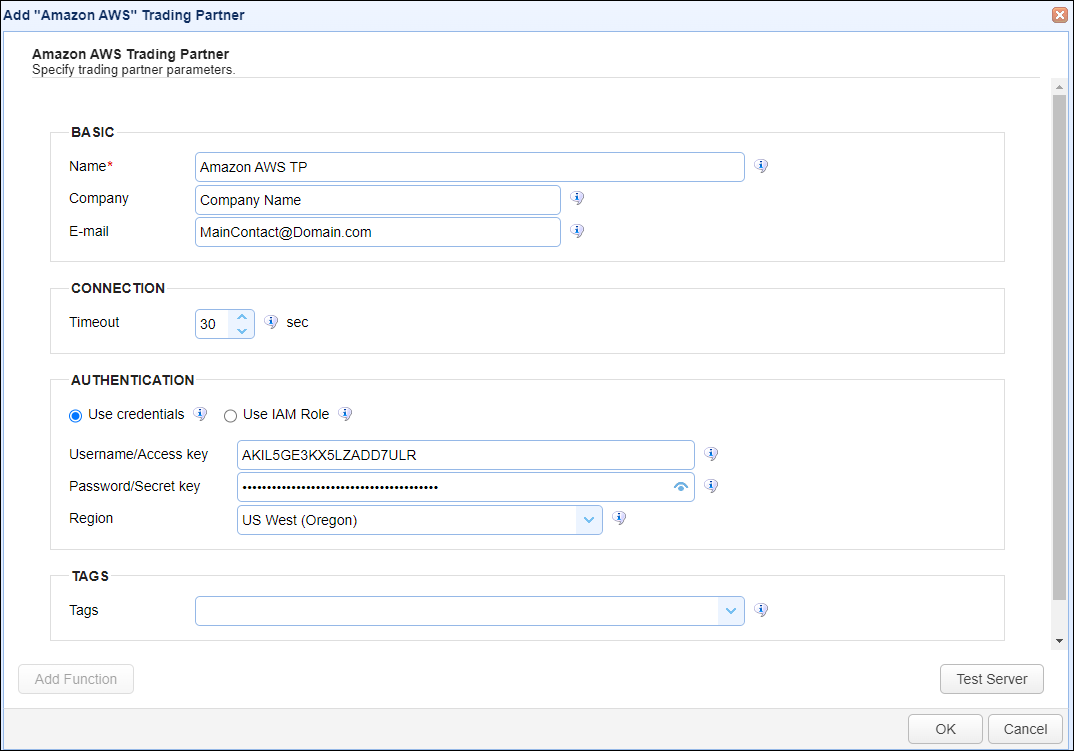Amazon AWS trading partner
This trading partner exchanges data with Amazon Web Services (AWS). The MFT Server initiates the connection to AWS. It is assumed that the administrator of the AWS service has provided you with the details needed to set up the AWS trading partner. Note: This trading partner has the following trigger actions available for use: Amazon Sns Publish Message, Amazon Sns Publish Sms Message, Amazon Sqs Consume Message, Amazon Sqs Delete Message, and Amazon Sqs Send Message.
Adding the Amazon AWS trading partner
In the desired domain, navigate to the AUTOMATION > Trading Partner module. Click on the Add button, or right click anywhere in the grid area and select Add from the pop-up menu. In the Add Trading Partner dialog window, select Amazon AWS as the Protocol, then click OK. The Add "Amazon AWS" Trading Partner dialog will appear as depicted in the image below.

Basic
Name - The unique name to assign to this trading partner. Enter a name that best describes the trading partner, as you will be selecting the name when using the partner in MFT Server features that support it.
Company - The name of the company that this trading partner represents.
E-mail - The primary email address for this trading partner.
Connection
Timeout - The timeout (in seconds) for establishing a connection to AWS.
Authentication - Note: Access Amazon documentation for more information about access keys and using IAM.
Use Credentials - If selected, enter the static Username/Access key and Password/Secret Key fields, which will be used to authenticate access to the Amazon remote service.
-
Username/Access key - The Username/Access key for Amazon Web Services.
-
Password/Secret Key - The Password/Secret key for Amazon Web services.
Use IAM Role - If selected, uses the Identity and Access Management role for authentication.
Region - The Amazon region for this trading partner.
Tags
Tags - If specified, this is the one or more tags that are used to limit which administrators have access to the network.